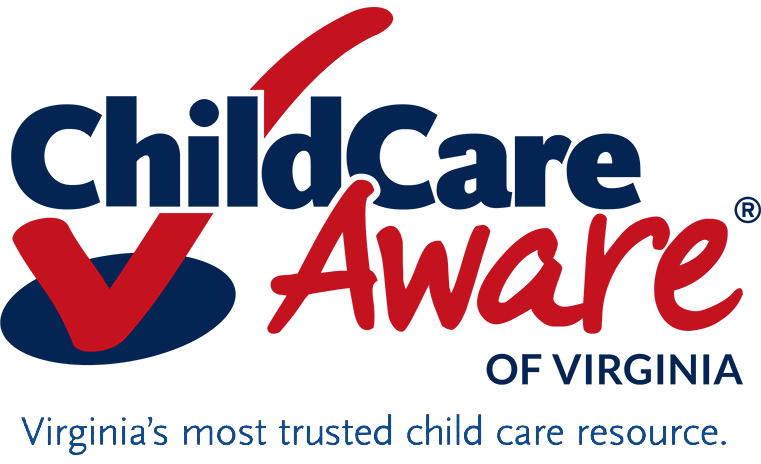Child care is not a one-size-fits-all solution. In Virginia, you have the option to choose between two types of care: center-based and home-based care, which both offer unique benefits and factors to consider.
When people think of child care, they usually imagine center-based care, which is provided in a designated facility outside of a private home. In center-based care, children are grouped into classrooms based on their age or grade level, and staff-to-child ratios are strictly enforced to ensure safety. Multiple adults are often present in each classroom, providing a higher level of supervision.
Parents often choose center-based care for its structured environment, which closely matches the school environment, increased opportunities for their children to socialize with peers, and access to specialized equipment, materials, and space. Center-based care offers specialized care for children, including:
These programs are operated by the Virginia Preschool Initiative and are typically designed for children aged 3-5 years old. They are part-time programs that aim to prepare children for kindergarten. Preschool programs can be provided through a school, faith-based organization, or child care center.
These programs are specifically designed for children from low-income families and provide health programs, parent involvement, and family support. Early Head Start serves families with children from birth to 3 years old, while Head Start programs serve children aged 3-5. Most Head Start programs are run by non-profit organizations, schools, and community action organizations.
These programs provide care for before- and after-school hours. They may also offer care during holidays and breaks. School-aged programs can be offered by the school, a community or non-profit organization, or in a family day home or child care center.
Home-based care is an option for families who prefer a more intimate, home-like setting for their children. Family day home providers are a type of home-based care where children are cared for in the provider’s home. This is the most common type of child care in the United States. It offers flexible hours that can better suit a family’s needs and a mixed-age group of children, which can be beneficial for families with children of different ages.
Another type of home-based care is Family, Friend, and Neighbor (FFN) care. This is often provided in the child’s or caregiver’s home by a relative, friend, neighbor, or babysitter. FFN care is not monitored by VDOE unless they care for children who receive government child care subsidies. Child Care Aware of Virginia does not provide referrals to this type of care. If you choose FFN care, make sure you perform a background check on the provider and any adults living in the home if in-home. Additionally, ensure the provider is First Aid/CPR certified.
Child Care Centers
Pros:
- Financial assistance: Many centers offer scholarships or sliding-scale tuition based on income, making quality care more affordable.
- Substitutes on staff: Centers have protocols in place for when teachers are sick, ensuring continuity of care.
- Ample supervision: With low child-to-staff ratios, centers can closely monitor children’s safety and well-being.
- Socialization opportunities: Children interact with a larger group of peers and multiple teachers, fostering diverse friendships.
- Structured environment: Centers provide a consistent routine and curriculum, promoting healthy development and learning.
- Age-appropriate activities: They offer specialized experiences and resources tailored to each developmental stage.
- Dedicated equipment: Centers have the space and supplies necessary for exploration and play.
Cons:
- Impersonal setting: With larger groups and less individual attention, some children may feel less nurtured.
- Less 1-on-1 time: While caregiver-child ratios are regulated, there’s still less focused interaction compared to home care.
- Difficulty finding care: Centers that accept infants are limited and often have long waiting lists.
- Rigid scheduling: Drop-off and pick-up times are fixed, which may not align with some families’ needs.
- Increased illness: In larger groups, contagious illnesses spread more easily.
- Closed during holidays: Centers often have set breaks, which may not align with family vacations.
- Staff turnover: High staff turnover can disrupt consistency and create challenges for children and families.
Family Day Homes
Pros:
- Flexible hours: Family day homes can adjust their schedule to match your family’s needs, providing greater convenience.
- Home-like environment: The familiar setting can ease the transition for young children and promote comfort.
- Close teacher-child bond: With one caregiver for multiple children, relationships can form more deeply.
- Accommodates mixed ages: Family day homes can care for children of different ages within the same family, promoting sibling interactions.
- Potential for customization: Each child’s needs can be addressed more individually compared to a center setting.
Cons:
- Limited backup: If the home provider is unavailable, there may be no immediate substitute, creating a potential care gap.
- Lack of oversight: Family day home providers typically work alone and may not have regular on-site supervision, which can be a concern for some parents.
- Shared resources: Equipment, toys, and space may be used for multiple purposes, potentially leading to wear and tear.
